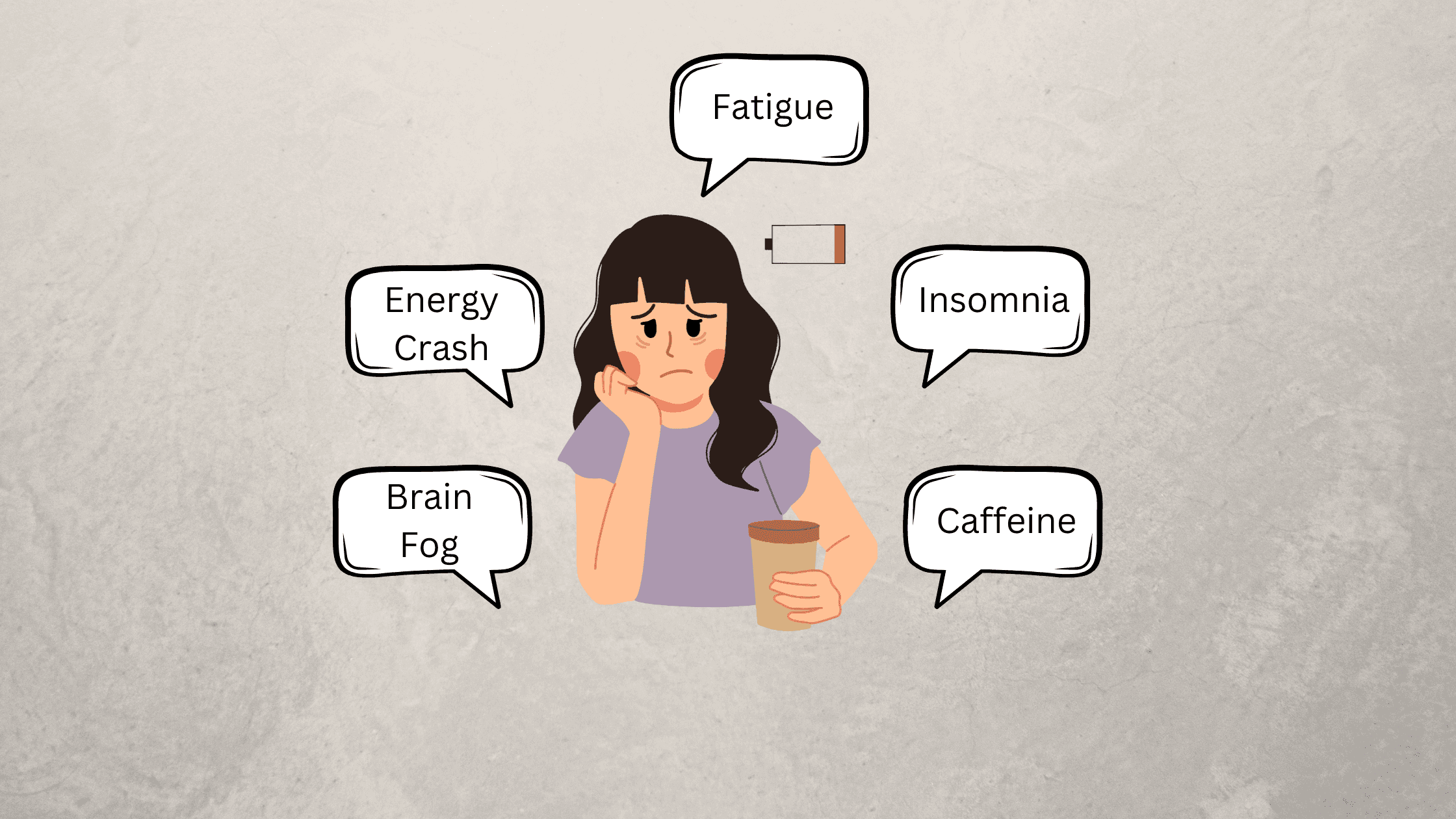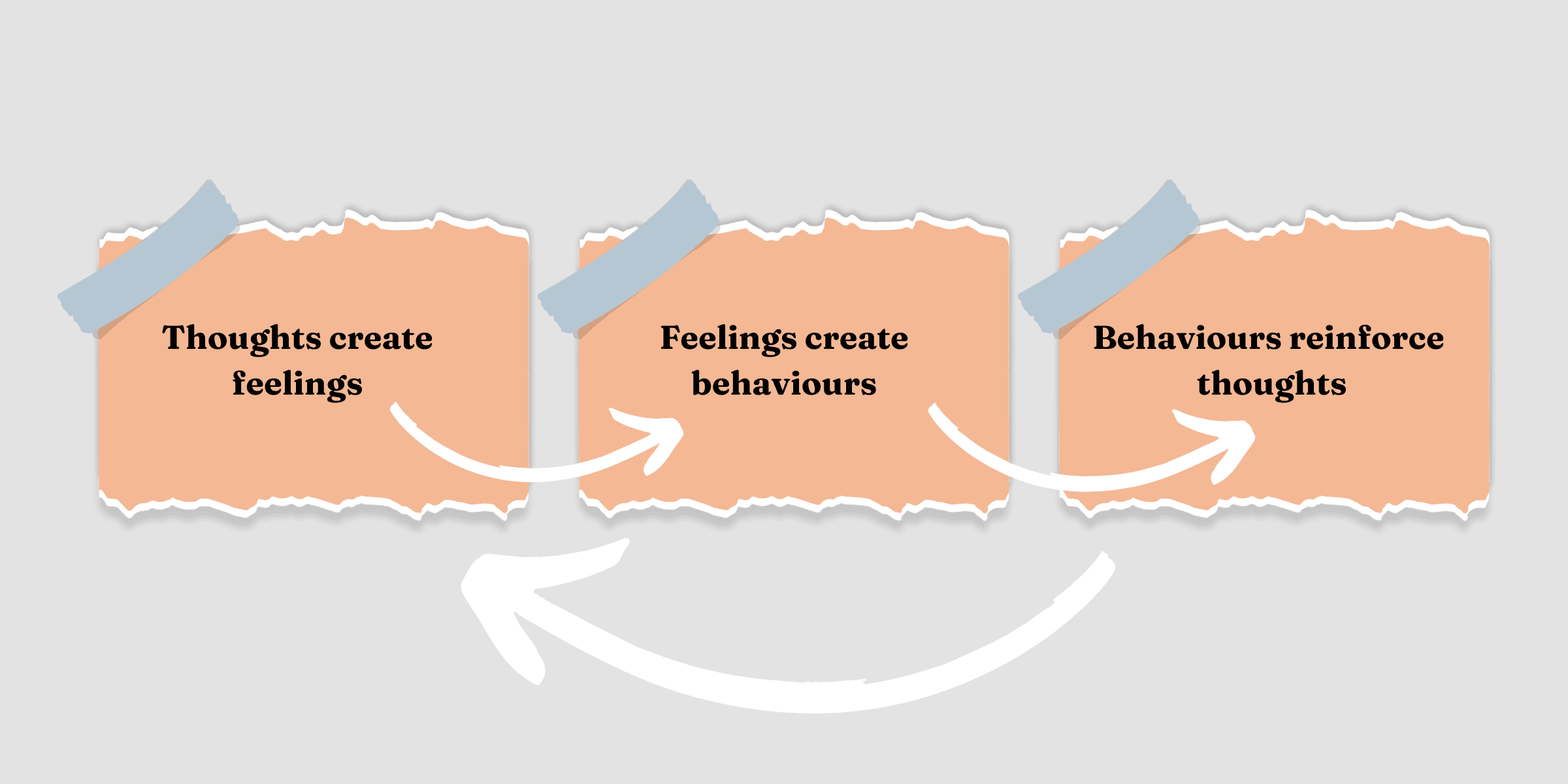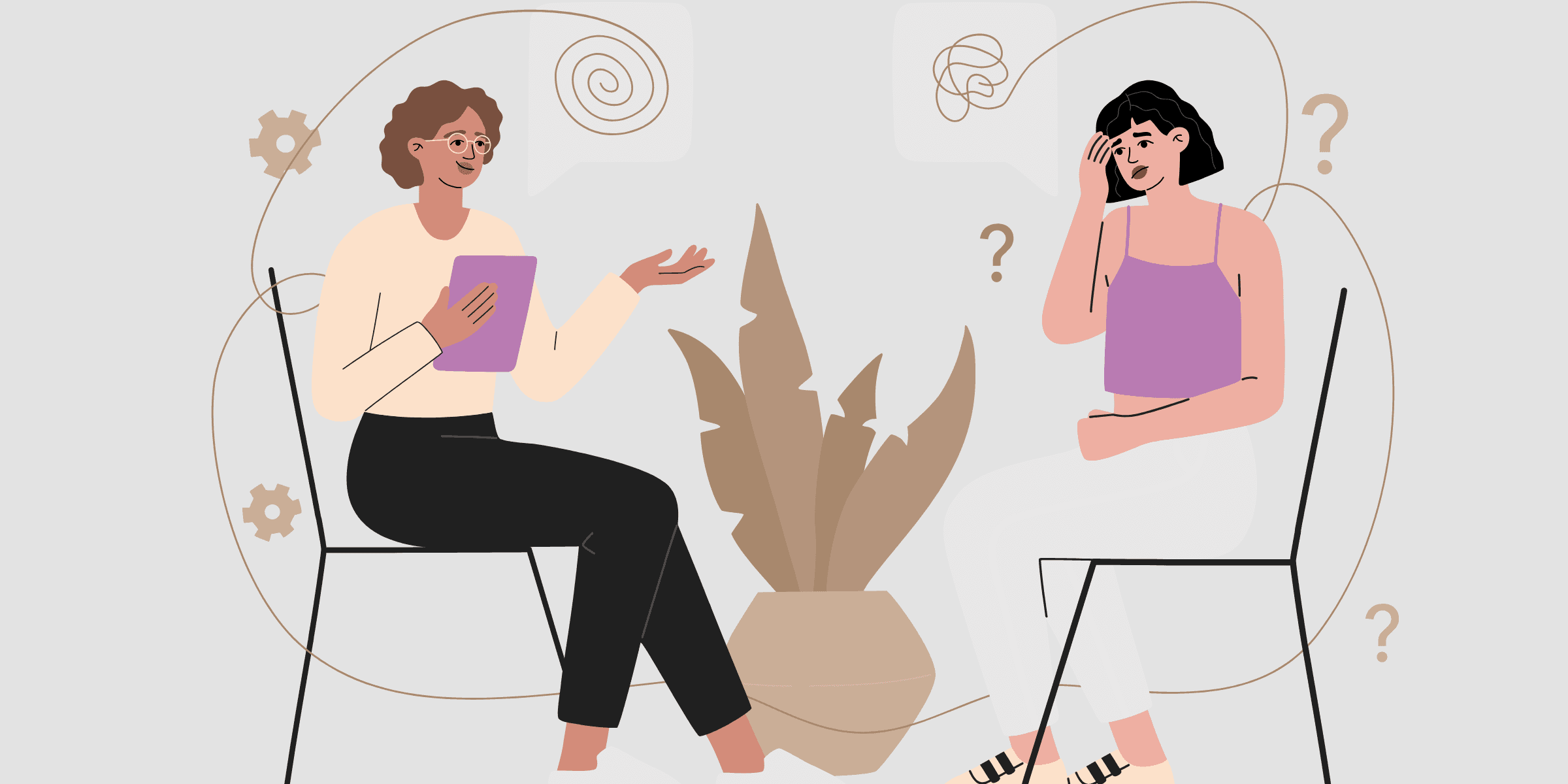


Mental vs Physical Health: Why Treating One Without the Other Doesn’t Work
Mental vs Physical Health: Why Treating One Without the Other Doesn’t Work
Vrinda Goel · April 2, 2025 · 3 min read
Vrinda Goel · April 2, 2025 · 3 min read
I recently came across an interview where mental and physical health were being compared, as if one could be more important than the other. One line in particular made me raise an eyebrow:
"Trying to think your way out of overthinking is like
trying to sniff your way out of cocaine addiction."
Dramatic? Absolutely. But also quite misleading. See, overthinking isn’t just a switch you can flip off with more thinking. It’s not a logic problem waiting to be solved. It’s often more deep-rooted: past experiences, unresolved feelings, or unmet needs that your mind is trying to work through. And trying to out-think it? That’s like trying to wipe a dusty shelf with a dusty rag: nothing gets cleaner, just more smeared.
As a psychologist, this made me reflect on the bigger issue:
Why do we keep putting mental and physical health in separate boxes? Shouldn’t it be mental health AND physical health?
Let’s unpack that a bit.
How Physical Health Impacts Our Mind and Body
Imagine your body as a complex ecosystem. When one part stops functioning, the rest feel it. You skip sleep for a few nights, and suddenly your patience runs out faster than your salary after payday. Eat nothing but instant noodles for three days straight, and your mood turns into a soggy mess. (We've all been there. No judgment.) Here’s how physical health directly influences mental well-being:
Sleep Deprivation = Mood Rollercoaster
Poor Nutrition = Low Energy + Brain Fog
Lack of Movement = Stagnant Mood
Chronic Illness or Pain = Mental Exhaustion
So no, it’s not just in your head. Your body calls the shots, too.
Why Mental and Physical Health Are Not Two Separate Things
Here's where we get it twisted: we often treat mental and physical health like they’re from two different families each trying to prove that they are more important. In reality, they’re more like siblings sharing the same room: if one leaves a mess, the other has to deal with it too.
Feeling mentally low? You might stop moving, eating well, or sleeping on time. Struggling with chronic pain or illness? Your mental resilience takes a hit.
The Danger of the Divide
When we rank one above the other, we ignore how deeply they influence each other. It’s not a competition. You can’t fully address physical health while ignoring mental health, and vice versa.
Treating only the body (with exercise) without tending to the mind is like cleaning your room before a guest arrives but stuffing all the mess into your cupboard. It looks tidy, but open the door and everything comes crashing down.
So What’s the Way Forward?
Listen to both your mind and body. If one’s off, the other probably is too.
Just going to the gym won't magically fix your mental health. Mental exhaustion needs as much attention as sore muscles do.
Make lifestyle changes that support both: movement, nutrition, rest, and social connection.
Final Thoughts
It’s time we stop treating mental and physical health like two different families and start seeing them as inseparable siblings. Your mental and physical health cannot truly thrive without one another.
So whether it’s a walk, a therapy session, a good cry, a good weight lifting session, or a warm plate of dal-chawal, take care of your whole self.
And if your nervous system feels stuck or your emotional energy’s running on empty, book a session with me. Let’s help your mind and body feel like a team again.
I recently came across an interview where mental and physical health were being compared, as if one could be more important than the other. One line in particular made me raise an eyebrow:
"Trying to think your way out of overthinking is like
trying to sniff your way out of cocaine addiction."
Dramatic? Absolutely. But also quite misleading. See, overthinking isn’t just a switch you can flip off with more thinking. It’s not a logic problem waiting to be solved. It’s often more deep-rooted: past experiences, unresolved feelings, or unmet needs that your mind is trying to work through. And trying to out-think it? That’s like trying to wipe a dusty shelf with a dusty rag: nothing gets cleaner, just more smeared.
As a psychologist, this made me reflect on the bigger issue:
Why do we keep putting mental and physical health in separate boxes? Shouldn’t it be mental health AND physical health?
Let’s unpack that a bit.
How Physical Health Impacts Our Mind and Body
Imagine your body as a complex ecosystem. When one part stops functioning, the rest feel it. You skip sleep for a few nights, and suddenly your patience runs out faster than your salary after payday. Eat nothing but instant noodles for three days straight, and your mood turns into a soggy mess. (We've all been there. No judgment.) Here’s how physical health directly influences mental well-being:
Sleep Deprivation = Mood Rollercoaster
Poor Nutrition = Low Energy + Brain Fog
Lack of Movement = Stagnant Mood
Chronic Illness or Pain = Mental Exhaustion
So no, it’s not just in your head. Your body calls the shots, too.
Why Mental and Physical Health Are Not Two Separate Things
Here's where we get it twisted: we often treat mental and physical health like they’re from two different families each trying to prove that they are more important. In reality, they’re more like siblings sharing the same room: if one leaves a mess, the other has to deal with it too.
Feeling mentally low? You might stop moving, eating well, or sleeping on time. Struggling with chronic pain or illness? Your mental resilience takes a hit.
The Danger of the Divide
When we rank one above the other, we ignore how deeply they influence each other. It’s not a competition. You can’t fully address physical health while ignoring mental health, and vice versa.
Treating only the body (with exercise) without tending to the mind is like cleaning your room before a guest arrives but stuffing all the mess into your cupboard. It looks tidy, but open the door and everything comes crashing down.
So What’s the Way Forward?
Listen to both your mind and body. If one’s off, the other probably is too.
Just going to the gym won't magically fix your mental health. Mental exhaustion needs as much attention as sore muscles do.
Make lifestyle changes that support both: movement, nutrition, rest, and social connection.
Final Thoughts
It’s time we stop treating mental and physical health like two different families and start seeing them as inseparable siblings. Your mental and physical health cannot truly thrive without one another.
So whether it’s a walk, a therapy session, a good cry, a good weight lifting session, or a warm plate of dal-chawal, take care of your whole self.
And if your nervous system feels stuck or your emotional energy’s running on empty, book a session with me. Let’s help your mind and body feel like a team again.
I recently came across an interview where mental and physical health were being compared, as if one could be more important than the other. One line in particular made me raise an eyebrow:
"Trying to think your way out of overthinking is like trying to sniff your way out of cocaine addiction."
Dramatic? Absolutely. But also quite misleading. See, overthinking isn’t just a switch you can flip off with more thinking. It’s not a logic problem waiting to be solved. It’s often more deep-rooted: past experiences, unresolved feelings, or unmet needs that your mind is trying to work through. And trying to out-think it? That’s like trying to wipe a dusty shelf with a dusty rag: nothing gets cleaner, just more smeared.
As a psychologist, this made me reflect on the bigger issue:
Why do we keep putting mental and physical health in separate boxes? Shouldn’t it be mental health AND physical health?
Let’s unpack that a bit.
How Physical Health Impacts Our Mind and Body
Imagine your body as a complex ecosystem. When one part stops functioning, the rest feel it. You skip sleep for a few nights, and suddenly your patience runs out faster than your salary after payday. Eat nothing but instant noodles for three days straight, and your mood turns into a soggy mess. (We've all been there. No judgment.) Here’s how physical health directly influences mental well-being:
Sleep Deprivation = Mood Rollercoaster
Poor Nutrition = Low Energy + Brain Fog
Lack of Movement = Stagnant Mood
Chronic Illness or Pain = Mental Exhaustion
So no, it’s not just in your head. Your body calls the shots, too.
Why Mental and Physical Health Are Not Two Separate Things
Here's where we get it twisted: we often treat mental and physical health like they’re from two different families each trying to prove that they are more important. In reality, they’re more like siblings sharing the same room: if one leaves a mess, the other has to deal with it too.
Feeling mentally low? You might stop moving, eating well, or sleeping on time. Struggling with chronic pain or illness? Your mental resilience takes a hit.
The Danger of the Divide
When we rank one above the other, we ignore how deeply they influence each other. It’s not a competition. You can’t fully address physical health while ignoring mental health, and vice versa.
Treating only the body (with exercise) without tending to the mind is like cleaning your room before a guest arrives but stuffing all the mess into your cupboard. It looks tidy, but open the door and everything comes crashing down.
So, What's the Way Forward?
Listen to both your mind and body. If one’s off, the other probably is too.
Just going to the gym won't magically fix your mental health. Mental exhaustion needs as much attention as sore muscles do.
Make lifestyle changes that support both: movement, nutrition, rest, and social connection.
Final Thoughts
It’s time we stop treating mental and physical health like two different families and start seeing them as inseparable siblings. Your mental and physical health cannot truly thrive without one another.
So whether it’s a walk, a therapy session, a good cry, a good weight lifting session, or a warm plate of dal-chawal, take care of your whole self.
And if your nervous system feels stuck or your emotional energy’s running on empty, book a session with me. Let’s help your mind and body feel like a team again.
Copyright Healing Horizon 2024
Copyright Healing Horizon 2024





